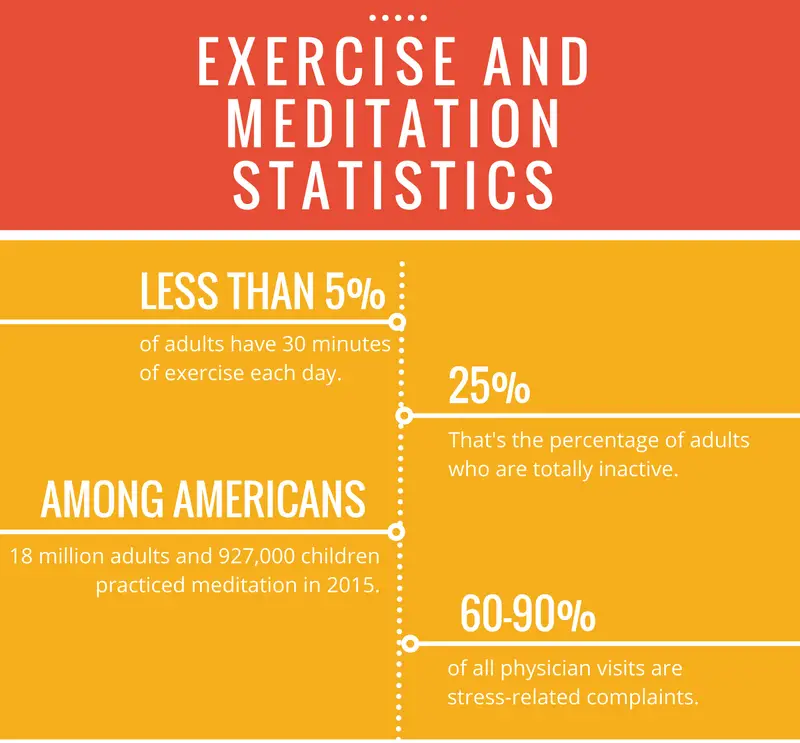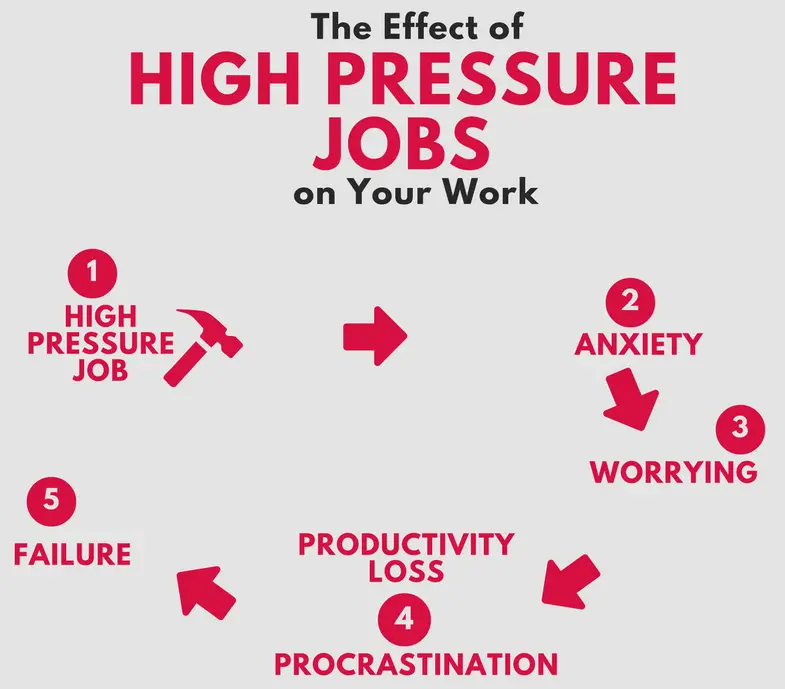In his 1988 hit called Don’t Worry, Be Happy, Bobby McFerrin says we should always expect troubles in life. But we must never let these bring us down; otherwise; we will only succeed in doubling them.
The problem is that although some worry is good, most of us worry too much. We worry about how others look at us. We worry if some terrorist won’t land a missile on our heads and so many other things.
Interestingly, a whopping 85% of things that people worry about don’t happen, only 15% do. Several studies have indicated that we spend between 1 hour 50 minutes and 2 hours 15 minutes worrying on a daily basis. In a week, that adds up to over 14 hours.
Nobody has ever made money worrying about his financial woes. And no one has ever improved an abusive relationship just by worrying about it. The only thing that worry does is robbing your happiness and denying you from living life like it is meant to be.
In this article, we will look at 6 techniques to help you stop worrying and start living.
1. Learn from the Past, Plan for the Future, but Live in the Present
The past is important since it keeps lessons we can use now. The future is equally important as it allows us to make plans to use when now arrives. The problem, however, is that we dwell so much in the past and the future, forgetting that it’s the present that’s more important.

The past and future are times that only exist in our minds. Regardless of how much we ponder on them, we will never have control over them. They are either gone or they are not yet here.
In his book called the Power of Now, Eckhart Tolle says living in the present lowers pain and allows one to connect with the peace inside. He says we have so many troubles because we spend too much time in the future or past.
Thinking about the future creates worry. Things like I will have to do this, do that, go here, finish that - all fill the brain with anxiety. You forget that until the future arrives, there is nothing you can do about any of those things.

Yesterday’s the past, tomorrow’s the future, but today is a gift. That’s why it’s called the present.
By focusing on the future, you lose the present which you would have used relaxing or being productive. This is the reason most of us feel so exhausted after a weekend that was meant to refresh us (instead of enjoying it, we worry it away).
The past also brings worries. You start thinking if only “I had done this, then perhaps this would not have happened.” Even thinking about positive past experiences brings worries: you tend to compare the present, which you deem unsatisfactory, to the past.
Matt Killingsworth, a former Harvard researcher, says that mind-wandering is the biggest cause of worry, this from his study involving 15,000 people from 80 countries. He says that mind-wandering costs us our happiness more than money, education, or status does.
The past and future are times that only exist in our minds.
So how can you start living in the present? Here are some tips:
Forgive—harboring past hurts forces you to live in the past, often regretting you should have done something. You might get angry, sad, or stressed. Forgiving has shown to keep all these negative things from your body.
Consciously remove worry from your mind—whenever your mind starts worrying about something, ask yourself this question: can I do anything about this problem at the moment? If not, then let it go and focus on the present. It takes time to get used to this, but once you do, you will wish you had known this sooner.
2. Exercise and Meditate
Despite the known benefits of physical activity and meditation, most of us fail to commit to these.

Both meditation and exercise freshen the mind. It’s like pressing the restart button on your computer. Studies have shown that after exercise or meditation, people think positively and experience low stress levels. This keeps them happy and reduces the likelihood of worrying.
In a study by Princeton University, researchers found that exercise produces neurons that speed calmness when one experiences anxiety or is stressed. Without exercise, it takes much longer to control stress or anxiety.
On meditation, researchers from Johns Hopkins University found that the process lowers stress, anxiety, depression, and pain, keeping worry at bay. This was after they analyzed several meditation studies.

Regardless of how busy you are, it’s easy to start exercising. Make a plan of when you will exercise and for how long. And stick to this plan. It also helps to exercise with friends as that has been proven to keep one motivated.
As for meditation, you can start by doing it for 10 minutes a day. You should slowly increase this time to 15 or 20 minutes. Watch this video on how to start meditating.
3. Don’t Focus Much on Results or Performance
You are about to make a presentation to the bosses of your company. You are so excited knowing how important this is. But you soon start sweating. Your breathing becomes rapid and you start feeling like you will faint.
Have you ever had such a feeling?
That’s a sign of anxiety. And it’s mostly caused by our fear of what may happen if our performance is mediocre or if our work fails to meet the standards.
In a New Zealand study, 1 in 7 women and 1 in 10 men reported to having clinical levels of anxiety. These were people working in high-pressure jobs.

Unfortunately, this anxiety does not help you perform any better. It gets you into a worrying state of mind. And this leads to poor quality work. You may also fail to meet your deadlines as you will likely procrastinate thinking you are not yet ready.
But the solution to this is easy; if it’s a report you have to write that’s making you anxious, simply start writing it. If it’s a presentation, wait until its time comes and then just do it. Do what you know and do it to the best of your abilities.
We are rewarded for our efforts. If you do your best, the result or performance will take care of itself.
We are rewarded for our efforts. If you do your best, the result or performance will take care of itself.
Here are some more tips that may help:
Ask questions—if it’s your boss giving you work that may make you anxious, ask questions on what’s expected of you and any other issues you don’t understand. It’s also a good idea to ask for resources you may not have.
Set realistic objectives—while you will want to produce stellar work, keep your goals realistic. Setting the bar too high will install fear in your mind. And this will lead to the worrying I talked of.
Get guidance—this may be in the form of training or coaching. Research by UPSKILL Health has shown that training improves self-esteem, resilience, and lowers stress. You will worry less about the quality of your work knowing you have the necessary skills.
Practice—whatever it is that makes you worry, keep practicing it. This is a guaranteed way of improving your confidence on that thing.
4. Focus on the Positives
No one is 100% optimistic and no one is 100% pessimistic. We all drift to both these sides depending on the situation we find ourselves in. While being pessimistic gets a bad rap, it is useful in some situations; for example, being a pessimist means you will always see room for improvement. And this can help you achieve greater things.
Too much pessimism, however, is poisonous. And several studies have proved this. A 2009 study involving 97,253 women found that optimists live longer that pessimists. This was attributed to the lower risk of suffering from most diseases in the former.
In related studies, these on placebo effects, it has been found that people can get sick for believing they will get sick. And they tend to feel better after being given placebo drugs. Likewise, negative thoughts will create negative beliefs that will bring sadness, anger, and worry.
If you learn to see the good in everything, you will close the doors of your mind and keep worry outside. So even though yesterday was sunny, the cold today may keep you in the house so you can read your favorite books.
To be more optimistic, you have to first remove negative words from your mind. Don’t say “I can’t,” “am miserable,” or “I am a failure,”. Choose neutral or positive words. And use these in every conversation. If someone asks how you feel, say I feel “magnificent.”
Another trick is to write a Happy List. Write at least 4 good things that happen to your every day. The Journal of Research in Personality says this list can keep your mood elevated for days.
5. Remove Elements that Contribute to Worrying
Some of the things that we worry about are within our control. These include people who make us feel bad, negative experiences, negative relationships, and negative commitments. These can take a toll on our mental and physical health.

Beautiful things happen in your life when you distance yourself from the negative things.
In a survey of 93,676 women between 50 and 79, those who had been abused physically or verbally showed signs of poor mental health. And an unhealthy mind is prone to wandering and worrying.

You must identify all the things that bring pain in your life, after which you should get rid of them. This is not an easy thing to accomplish. But realize that your happiness depends on your freedom from negative things or people.
6. Realize that Worrying Does Not Solve Problems
The greatest weapon in the fight against worry is your mind. It must realize that worry does not help. This will allow you know when you start worrying, at which you can shift your mind to other pleasant things.
All that worry does is preoccupy your mind with things you can’t do anything about. You waste time you would have spent doing something you enjoy.

Worrying is like a rocking chair, it gives you something to do, but it gets you nowhere.
Several studies have shown that worrying induces the same level of stress as that which is evident when in physical danger. Stress increases the stress hormones circulating in your body. And this will speed aging, compromise your immunity, make your irritable, affect your productivity, and kill your ability to concentrate. You may have troubles sleeping at night and you may also experience a low sex drive.
All that worry does is preoccupy your mind with things you can’t do anything about.
Keep a diary and write down all your worries in it. Putting them on paper will make you realize that you are wasting time on things that don’t matter. You will free your mind and will be able to live happily.
Conclusion
Being human and alive is a special gift. So we must celebrate it rather than waste time worrying. Like Bobby McFerrin says in his song, worrying does not help us in any way. So put a stop to it and try to be happy. If you can’t, he says you can call him. But in case you don’t have his number, do what you just read in this article.
Have you been worrying about something? And if yes, what ways have you used to make yourself stop worrying?
